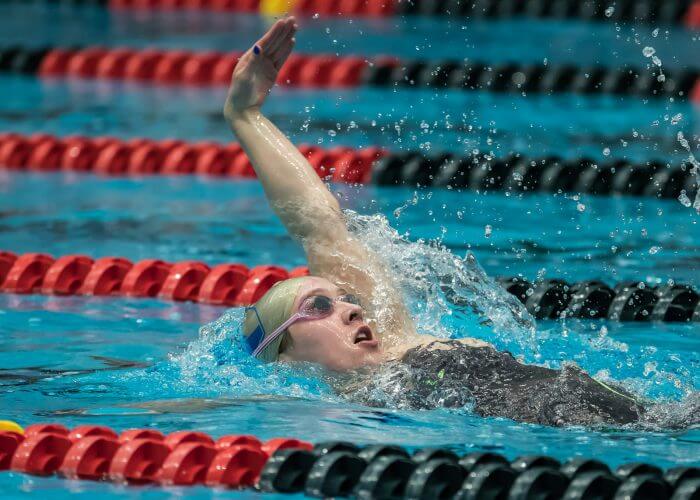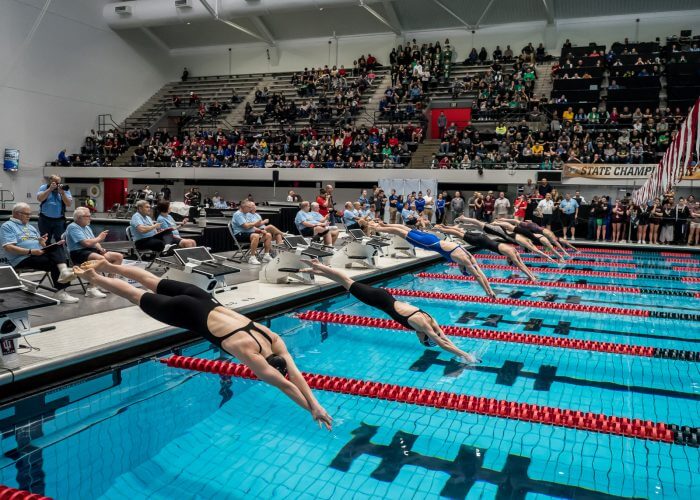Swimmers are renowned for their dedication to their sport. We train long hours at ridiculous times and spend all day at meets only to spend a few minutes actually racing in the pool. However, all swimmers reach a point in their careers when they question why they’re still doing it. Although many relocate their love for the water, there are several factors which can stop a swimmer returning to the sport, especially in the early years.
Here are seven reasons young swimmers stop swimming and how we can combat them to make the sport we love even more popular:
1. Pushy Parents
We all know a pushy swim parent. They’re opinionated and loud, leaving you feeling sorry for their child. However, as much as this type of parent makes you cringe, their child is the one who has to deal with their behavior outside the pool environment. This dominating behavior can lead to swimmers hating a sport that they should enjoy simply because they are never allowed a break from it. A simple way of getting a swimmer through this is to talk to their parent. Once they realize the effects of their tactics, they’ll likely monitor themselves more closely.
2. Injury
Photo Courtesy: Dr. G John Mullen
Injury is every swimmer’s worst nightmare, but with the massive amount of strain we put on our bodies, injury is common in the swimming community and can be a main reason why many people exit the sport. Injuries are – to a certain extent – preventable through pre-practice exercises, a good warmup and smart training. And most often, the occurrence of an injury does not need to end a swimmer’s career. Physiotherapists are keen to help any sportsperson get back into their favorite modality.
3. Coaches
Coaches often dictate the feelings the swimmer has toward the sport. If a coach is overly controlling, a bully and makes a habit of having favorites, he or she will likely discourage swimmers from wanting to swim. But coaches of integrity treat their athletes well and help instill life lessons through the sport of swimming. Those coaches do more than keep swimmers in the sport, they help swimmers become better people through the sport.
4. The Lack of Social Life
Young people love spending time with their friends, and while many swimmers find our friends in the pool, some want to spend time with their friends outside of it. This can lead to swimmers missing training to spend time with groups of people who aren’t swimmers and eventually may lead them to quit swimming (as they become jealous of those with more relaxed free time). This, however, doesn’t have to be the case. Swimmers can learn to balance their time well so they can enjoy other things in their free time. Committed swimmers often find the biggest draw to the sport is the social circle it comes with.
5. Boring Sets

Photo Courtesy: Peter H. Bick
Every swimmer has a set they hate. These sets are normally monotonous and dull and make you wonder why you bothered to get in the water. Now imagine doing one of these sets every day. Slowly, the hate for the set changes into a hatred for the sport itself. By making sets fun or mixing them up, a coach will not only improve their team but keep athletes interested and engaged in the sport.
6. School
Education is important. Sometimes the dedication that is needed for swimming can have a negative impact on how a swimmer performs at school. Ultimately, some swimmers quit the sport to improve their grades. A club can combat this by encouraging swimmers to balance their education and sport. A good coach understands school is a priority and they will understand when a practice needs to be missed here and there.
7. Lack of Improvement

Photo Courtesy: Peter H. Bick
As a swimmer you can’t help but compare yourself to your teammates. You do the same sets, swim the same mileage and race at the same meets as each other, so to watch someone who does the same training as you achieve more is hard for anybody to swallow – especially the young swimmer. By teaching a young swimmer to only compare themselves to themselves and focus on pushing oneself to their own greatest potential, a swimmer will learn that swimming is about individual performance and what can be learned in the refining process.
All commentaries are the opinion of the author and do not necessarily reflect the views of Swimming World Magazine nor its staff.
